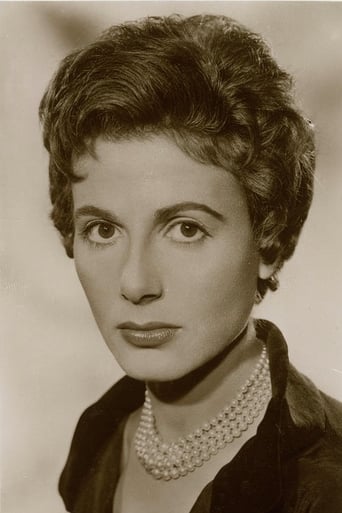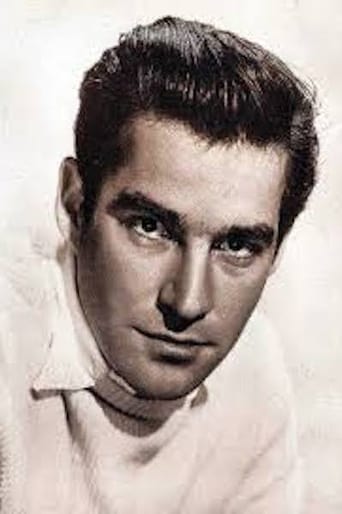GamerTab
That was an excellent one.
Claysaba
Excellent, Without a doubt!!
Stephan Hammond
It is an exhilarating, distressing, funny and profound film, with one of the more memorable film scores in years,
robertconnor
Found guilty of murder and sentenced to death, a young woman lives out her last days under the watchful eyes of a small group of prison wardens.From its edgy opening sequence as the camera furtively tracks Dors' determined and resolute steps towards the killing, to the devastating final image of a smouldering cigarette we suspect will still be burning after the executioner has pulled his leaver, Yield To The Night is an extraordinary exploration of the reasons and repercussions surrounding a premeditated murder in mid-fifties Britain. At its heart is a performance which, over 50 years later still resonates with depth and naturalism. Even as we have witnessed her coldly and repeatedly shoot another woman to death, under the expert direction of J. Lee Thompson, Dors enables us to feel sorrow for the killer Mary Hilton and even if we can't condone the deliberate taking of her victim's life, we can at least realise that Hilton is also somehow a victim of circumstance. Dors doesn't put a foot wrong from beginning to end and the fact that she didn't receive domestic and international award nominations for her performance is in my opinion as puzzling as it is unforgivable, especially when one considers what were the celebrated performances of the time (Virginia McKenna, Audrey Hepburn and Dorothy Alison were BAFTA nominated that year). Could it be that the British and subsequently Amercian studio systems were unwilling to accept Dors as the intelligent and talented actress she so obviously was? Certainly the marketing and promotion of Yield To The Night in the US supports this premise - retitled Blonde Sinner, with lurid posters ridiculously emphasising Dors' sex symbol qualities and carrying the ludicrous and tacky tag-line "The Man-By-Man Story of a Lost Soul".Flaws? Yes - as written, Jim Lancaster, whilst handsome and initially charming just doesn't allow the viewer to believe he could be the reason for Mary's actions. Undoubtedly less to do with Michael Craig's performance than with the character being undeveloped in general. However, overall Yield To The Night is a powerful film that will linger long after the final credits have rolled, and now it is finally available in DVD should become essential viewing for all British cinema fans.
Greensleeves
Diana Dors is unforgettable in the role of a murderer condemned to death after shooting her love rival in cold blood. The murder scene comes right at the start of the movie and is shocking in its cold blooded approach. Diana is beautiful and glamorous in the story flashbacks as we see what led up to this terrible act, but for much of the movie we see her in the condemned cell stripped of her glamour. Although she never expresses any regret for what she has done we sympathise with her plight as she is mentally tortured to death before her execution by the pitiless prison regime. The inhumanity of capital punishment is also expressed by the torment that all around her have to go through before the punishment is carried out. Not only relatives and friends but also the people whose job it is to care for her while she is behind bars. The performances all round are superb from the dignity of the Prison Governor played by Marie Ney, the compassion of warder Yvonne Mitchell, the benevolence of prison visitor Athene Seyler and the self pitying mother Dandy Nicholls. Diana's performance is stunning and will haunt you for days after seeing this film and her reading of poetry by A.E. Houseman will linger long in your memory.
bterlecki
In the best tradition of black and white, this film starts with a bang. After a pair of shapely legs get out of a classic 56 T-Bird in England somewhere, a gun shot is fired, without ever seeing who did it. The idea of making an anti- capital punishment movie in the mid-fifties right after the McCarthy era was ahead of it's time. Never preachy or blatantly left winged, this great unknown sleeper carries on the classic female incarcerated films of THE SNAKE PIT to the era of fins. Even the female prison guards show compassion, and the movie never uses bitch-slapping gimmicks for thrill effects. A quiet study that still touches the heart. Diana Dors shines in a smart role choice that added to her credits away from her necessary frothy pointed bra-B flicks. No wonder people loved her right up to her death.
James.S.Davies
Diana Dors in her first dramatic role, and last before her unsuccessful venture into Hollywood, sees her trade in her glamorous image for a more realistic and down to earth performance as a woman who finds herself on death row after committing a crime of passion. The film, based on a John Henry novel, has obvious similarities to the real life drama of Ruth Ellis, who murdered her ex-lover on a busy London street and become the last British woman to be hung a year before this film was made.Dors had become one of the more famous starlets to emerge in Britain's post-war attempt at a Hollywood-like star system. Her familiarity with British audiences no doubt ensured sympathy for her character, which played partly on her bad-girl image. However, this was more than a mere star vehicle, and it saw her transform herself from a star to a serious actress. The American distributors seemed to miss the point somewhat, titling the film on its release there, 'Blonde Sinner'.The film obviously draws upon the controversial issue of capital punishment. There is no doubt that, despite us witnessing her murder in cold blood, our sympathies are meant to lie with Dors' character. This is of course partly due to her star persona but also because of the way in which the film is directed. Rarely do we see the face of her victim who we learn nothing of apart from his cold attitude towards her ex-lover, Michael Craig, whom Dors has shown nothing but compassion for. Her callous attitude towards his tragic New Years eve suicide is exemplary of this, when she shrugs him off as someone who had just been a nuisance to her.However, the film is commendable in that manages to avoid mere melodrama. We don't just get a one-sided view of events. We are left in no doubt that the Dors character is herself an adultress who committed a murder with malice and forethought. The issue the film achieves in getting across is the detrimental effect the capital punishment system has on those who are around it. Not only do we see the effect it has on Dors' family but also we get an insight of the wardesses who are with her for her final days. In particular we recognise the discipline shown by Yvonne Mitchell's character, Macfarlane, a young wardess who is drawn with compassion and sympathy towards Dors, and yet must contain her emotions especially during the last agonisingly pensive hours. There is also a feeling that we should not be overly sympathetic towards Dors, as she is rebuked by an elderly Christian lady that visits her for being too self-pitying and for showing little or no remorse. This theme is of course drawn on in more detail in Tim Robbins' recent death row drama 'Dead Man Walking'.J. Lee Thompson's taut direction shows signs of his later atmospheric Stateside successes such as 'Cape Fear'. The expressionistic filming techniques used to add to the claustrophobic tension of the prison cell scenes are particularly effective. Yvonne Mitchell provides a strong supporting role as the young wardess who befriends Dors. However, it is Dors herself who should be applauded most of all for her emotional and naturalistic performance as the woman awaiting her fate. Some of the film's themes may seem rather cliched to a modern audience but I would imagine it hit a nerve when the issue was at the forethought of the British consciousness.







